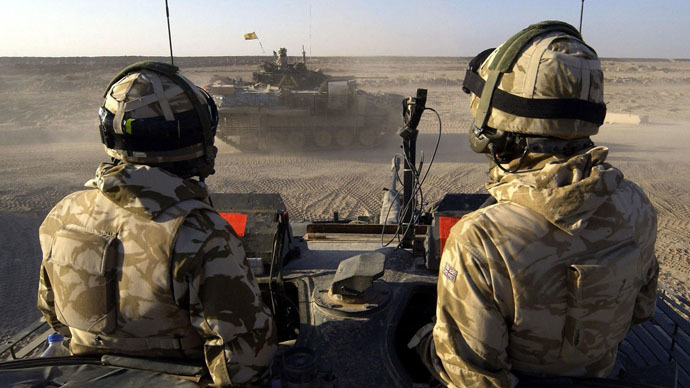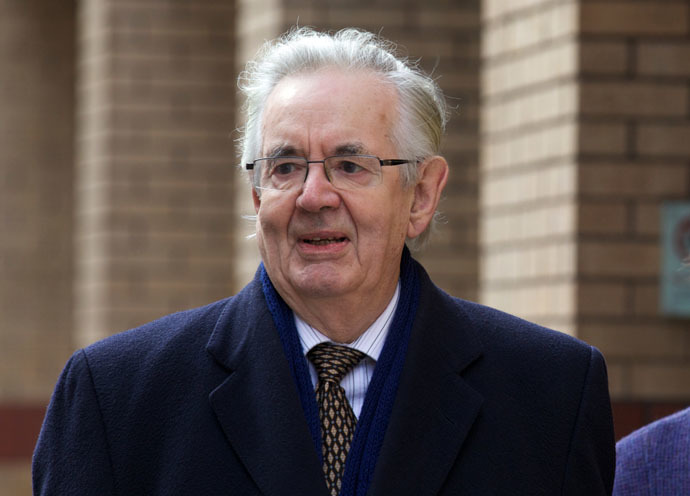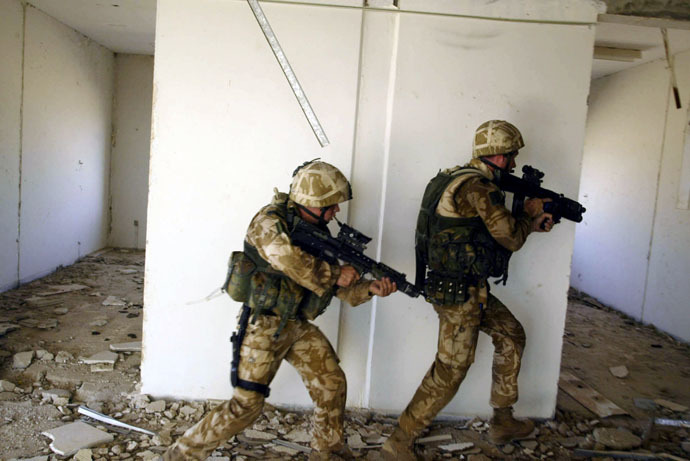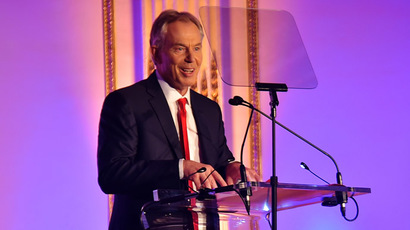UK military face damning report into bloody Iraq battle, torture & mutilation

UK defense officials face heated condemnation this week as the findings of a public inquiry into one of Britain’s most brutal battles in recent years surfaces. UK troops have been accused of the unlawful murder and torture of Iraqi citizens in 2004.
The al-Sweady inquiry, named after a 19-year-old Iraqi man killed by British soldiers, was set up by ex-high court judge Sir Thayne Forbes in 2009. A report detailing its findings will be published on Wednesday.
The probe was foisted on the Ministry of Defence (MoD) when British courts denounced the body’s failure to conduct an internal investigation into the events that followed clashes at a British checkpoint, north of Basra in south-Western Iraq in 2004. The clash was known as the Battle of Danny Boy.

The public inquiry, which cost in excess of £23 million, was set up after high court judges said the MoD had acted in a “lamentable” fashion. The judges accused the MoD of breaching its obligation to transparency, and of an overriding failure to investigate the aftermath of the contentious battle.
Central to the judge-led al-Sweady inquiry, were a litany of allegations that British troops unlawfully murdered and abused unarmed Iraqi citizens they had kidnapped and transferred to a military outpost in southern Iraq in 2004. In addition, UK troops were accused of mutilating the bodies of deceased Iraqis.
Lawyers representing the Iraqis argued the British troops, under investigation, had committed “gross violations of the Geneva conventions.” Lawyers acting on behalf of the UK soldiers countered the claims, however, stressing such allegations were merely fuelled by Iraqis’ effort to pursue financial compensation.
As the inquiry progressed, the MoD said Iraqis who had accused UK soldiers of torture and murder were guilty of a “criminal conspiracy” to corrupt the course of justice. The body also warned the Iraqis had lied repeatedly under oath.
The heated and bitter exchanges continued throughout the course of the probe, which came to a close earlier this year.
Conflicting reports
During the inquiry, it emerged UK military intelligence officer, James Rands, had hurled his laptop into the ocean from a ferry.
His decision to dispense with the computer, which contained swathes of photographs of Iraqis who had perished during the Battle of Danny Boy, compounded Iraqi suspicions relating to the alleged torture and murder of innocent civilians.

Despite Rands’ effort to destroy his laptop, however, copies of the pictures stored on it were circulated.
Lawyers representing the Iraqis said Rands dispensed with the computer in 2006 to hide modifications he had made to the files - specifically relating to the time the pictures were taken. But the military intelligence officer dismissed the allegations as ludicrous and conspiratorial.
He claimed the laptop had ceased to function in 2006, and he was unsure if it still contained the images. Rands insisted he disposed of the device by throwing it overboard because he felt anxious his storage of sensitive data on his personal laptop breached army regulations.
The year-long al-Sweady probe uncovered damning evidence of brutality and intense fighting following the ambushing of UK soldiers. It also unveiled evidence of how unprepared British troops had been for the insurgency.
Throughout the inquiry, it was revealed the bodies of the deceased were ferried to an Iraqi hospital. The court was informed an array of weapons including fixed bayonets and high velocity rifles were deployed in the killing of the Iraqi citizens. Some of the bodies were in such a terrible condition, the inquiry said it would not publish images of them.
Iraqi bodies "state so horrific that the inquiry has said it will not publish photographs of them." http://t.co/Bpi2wxWSz2#AlSweady#Iraq
— Glenton (@joejglenton) December 15, 2014
According to the Guardian, UK army chaplain Francis Myatt was horrified by the massacre.
“I’ve never seen so many dead in one place,” he told the inquiry.
Lawyers representing the Iraqis concluded there was not enough evidence to support their claims UK troops had unlawfully murdered Iraqi citizens and maltreated detainees.
Lawyers acting on behalf of the accused UK soldiers said Iraqi witnesses central to the case had “persistently and deliberately” given distorted and erroneous evidence under oath.














